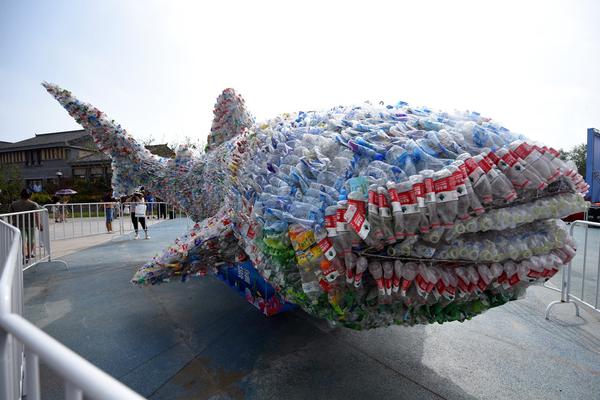Crack.
After a nearly 20-mile rift formed across Antarctica's retreating Pine Island glacier in late September,Adult | Adult Movies Online about 115 square miles of ice -- an area more than five times the size of Manhattan -- has now broken off into the sea.
The single largest chunk of ice is four times the size of Manhattan.
This iceberg calving event reinforces a continuing story of the melting and retreat of Antarctic glaciers, particularly due to relatively warm oceans eating away at the ice from below.
This Tweet is currently unavailable. It might be loading or has been removed.
"This retreat and weakening is almost entirely driven by a thinning driven by ocean melting at the bottom," Stef Lhermitte, a geoscientist specializing in remote sensing at the Netherlands' Delft University of Technology, said over email.
This latest calving -- while significant -- was the sixth-largest event of its kind from the Pine Island Glacier since 2001.
Ice shelves -- which are the ends of massive Antarctic glaciers that float over the ocean -- regularly break into the sea.
But today, with ice thinning from below, the ice is breaking into the sea faster than can be naturally replenished.
 Original image has been replaced. Credit: Mashable
Original image has been replaced. Credit: Mashable "At the beginning of the 2000’s it was about every 6 years, but the frequency of calving has increased since 2013," said Lhermitte.
"The resulting icebergs also disintegrate more rapidly as already happened with yesterday's iceberg."
These ice shelves matter, a lot.
SEE ALSO: This scientist keeps winning money from people who bet against climate changeSpecifically, they act as plugs, often pinning to the seafloor and holding back Antarctica's formidable ice sheets from flowing unimpeded into the ocean.
With more ice retreat, like this latest instance, the ice shelf loses more footing and becomes increasingly vulnerable to collapse.
In short, the plug may disintegrate in the ocean which could eventually unleash yards -- not feet -- of sea level rise.
This Tweet is currently unavailable. It might be loading or has been removed.
Such major collapses are relatively new and largely unprecedented in human history, so it's unknown how quickly this might happen -- perhaps this century, or soon after.
"We really don’t know for sure how fast they’re going to collapse," NASA oceanographer Josh Willis said in September.
(Editor: {typename type="name"/})
 SpaceX's Starlink will provide free satellite internet to families in Texas school district
SpaceX's Starlink will provide free satellite internet to families in Texas school district
 NASA's Hubble confirms largest comet ever seen
NASA's Hubble confirms largest comet ever seen
 SpaceX increases prices for Starlink service and dish hardware
SpaceX increases prices for Starlink service and dish hardware
 Watch Barbie float with NASA astronauts in space
Watch Barbie float with NASA astronauts in space
 Best portable power station deal: Save 44% on the Jackery Explorer 100 v2
Best portable power station deal: Save 44% on the Jackery Explorer 100 v2
Today's Hurdle hints and answers for May 5, 2025
 If you like playing daily word games like Wordle, then Hurdle is a great game to add to your routine
...[Details]
If you like playing daily word games like Wordle, then Hurdle is a great game to add to your routine
...[Details]
Chinese workplace management app DingTalk eyes overseas expansion: report · TechNode
 Alibaba-owned workplace management app DingTalk has put global expansion on its agenda after running
...[Details]
Alibaba-owned workplace management app DingTalk has put global expansion on its agenda after running
...[Details]
Wordle today: The answer and hints for June 9
 Can't get enough of Wordle? Try Mashable's free version now O
...[Details]
Can't get enough of Wordle? Try Mashable's free version now O
...[Details]
Mars rover rumbles by crashed artifacts in the Martian desert
 NASA's Perseverance rover is on a mission to sleuth out past evidence of life on Mars. Along the way
...[Details]
NASA's Perseverance rover is on a mission to sleuth out past evidence of life on Mars. Along the way
...[Details]
Why Building a Gaming PC Right Now is a Bad Idea, Part 1: Expensive DDR4 Memory
‘Apple Intelligence’ may be the name of your iPhone’s new suite of AI features
 WWDC 2024 is looming — and we now have a pretty good idea of what to expect during event, than
...[Details]
WWDC 2024 is looming — and we now have a pretty good idea of what to expect during event, than
...[Details]
 Japan’s Ministry of Finance trade statistics show that half of Japan’s semiconductor manufacturing e
...[Details]
Japan’s Ministry of Finance trade statistics show that half of Japan’s semiconductor manufacturing e
...[Details]
Disney hacked, apparently by angry Club Penguin fans
 Disney has been hacked.According to a new report from BleepingComputer this week, 2.5GB worth of int
...[Details]
Disney has been hacked.According to a new report from BleepingComputer this week, 2.5GB worth of int
...[Details]
Stablecoin bill advances in U.S. Senate as Trump critics call to end his crypto dealings
 The crypto industry is celebrating this week as a controversial stablecoin bill dubbed the GENIUS Ac
...[Details]
The crypto industry is celebrating this week as a controversial stablecoin bill dubbed the GENIUS Ac
...[Details]
Best free online courses from MIT in June 2024
 TL;DR:Find a wide range of free online courses from MIT on edX. edX hosts so many free online course
...[Details]
TL;DR:Find a wide range of free online courses from MIT on edX. edX hosts so many free online course
...[Details]
Best robot vacuum deal: Save $320 on Shark Robot Vacuum and Mop

Ruud vs. Zverev 2024 livestream: Watch French Open for free

接受PR>=1、BR>=1,流量相当,内容相关类链接。